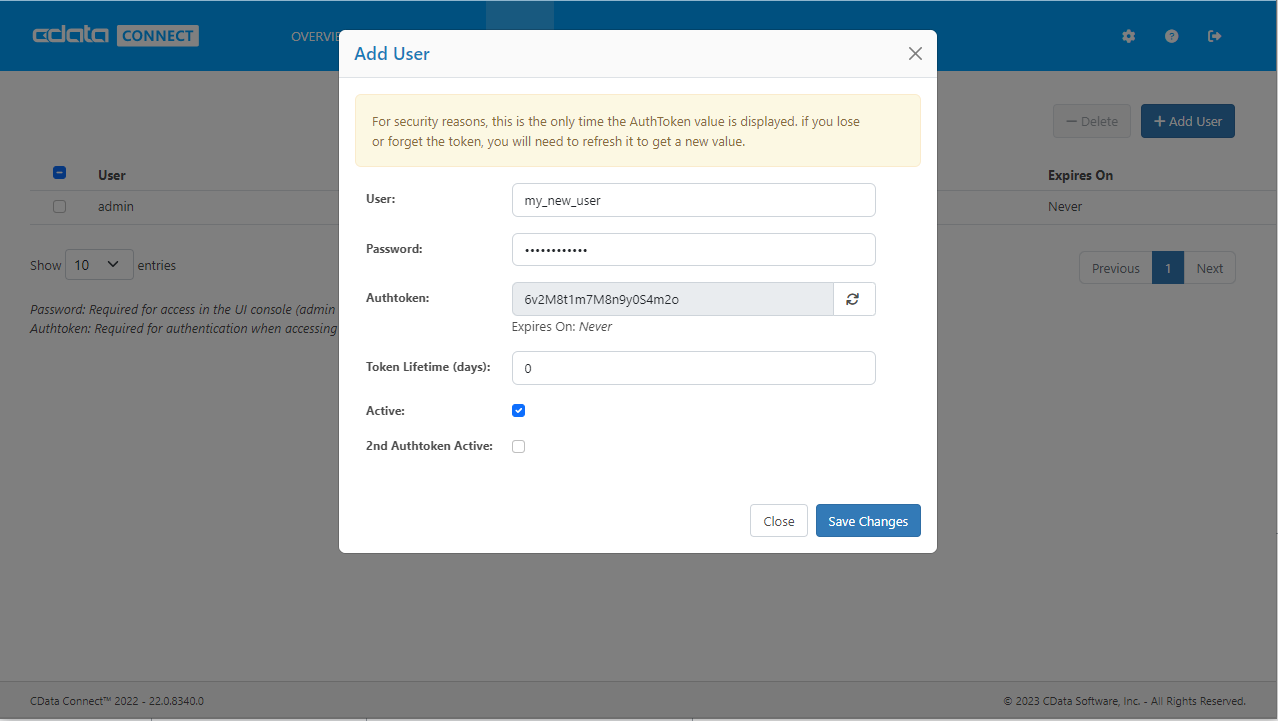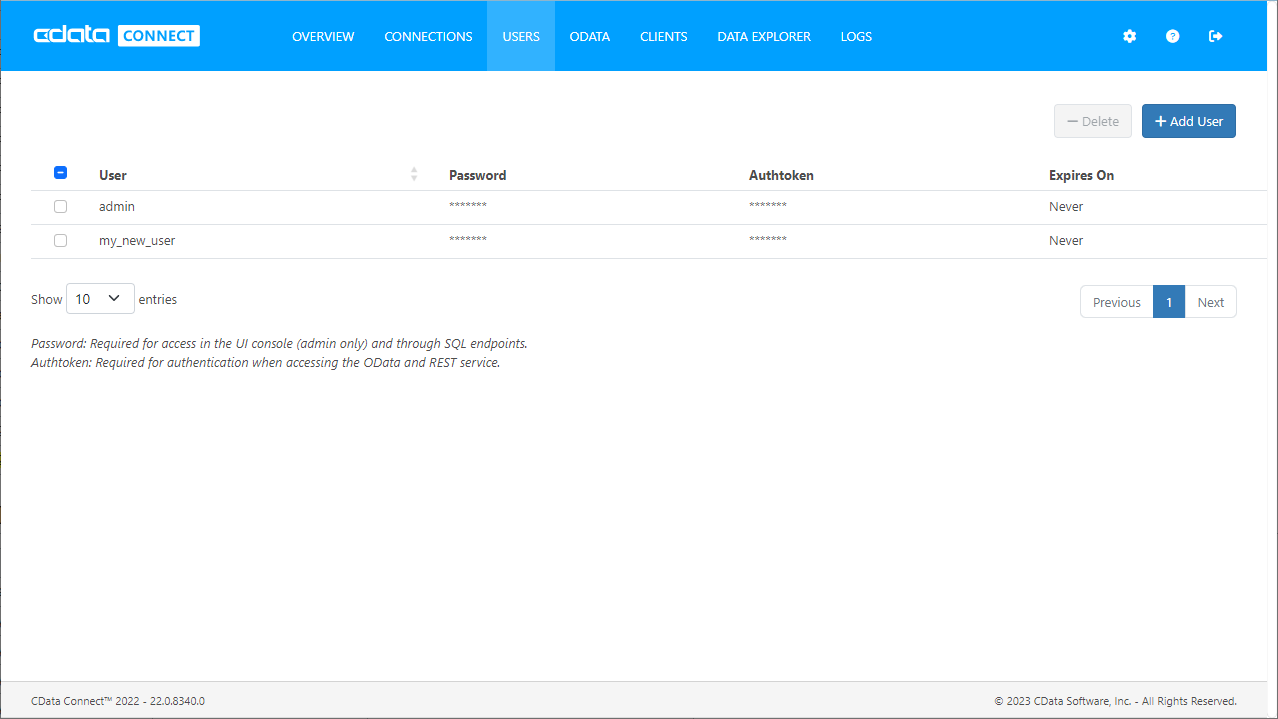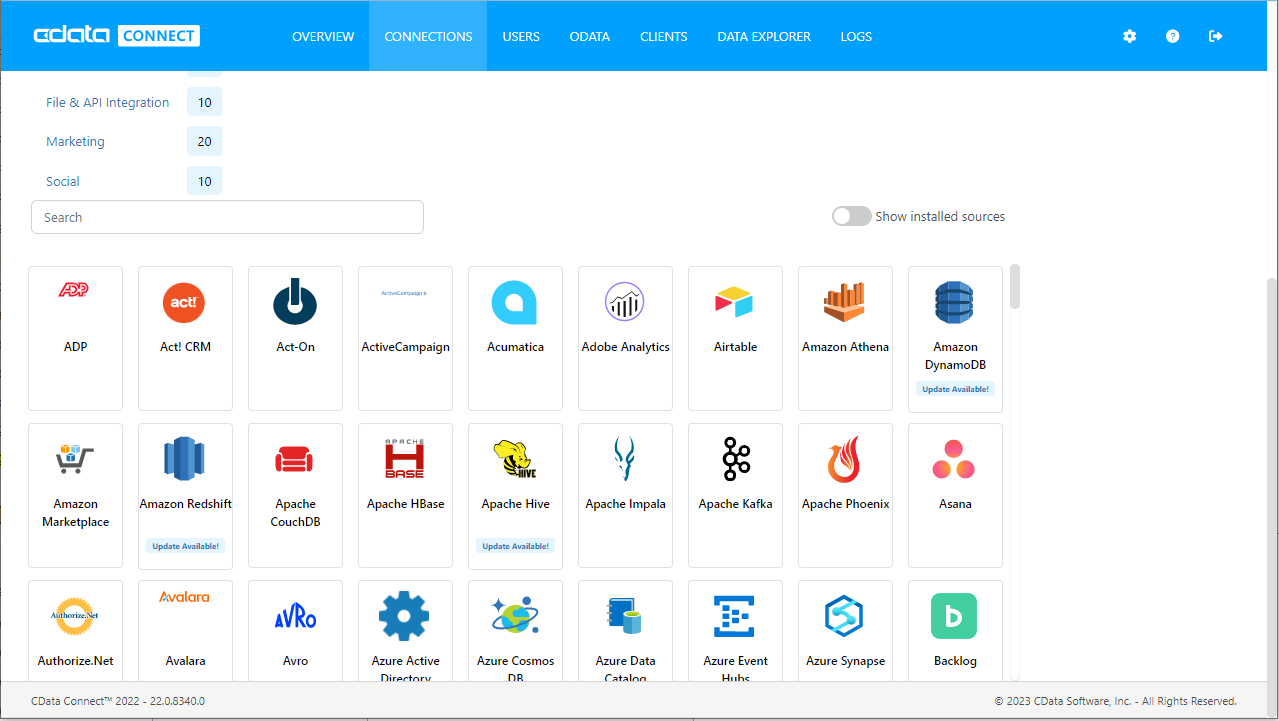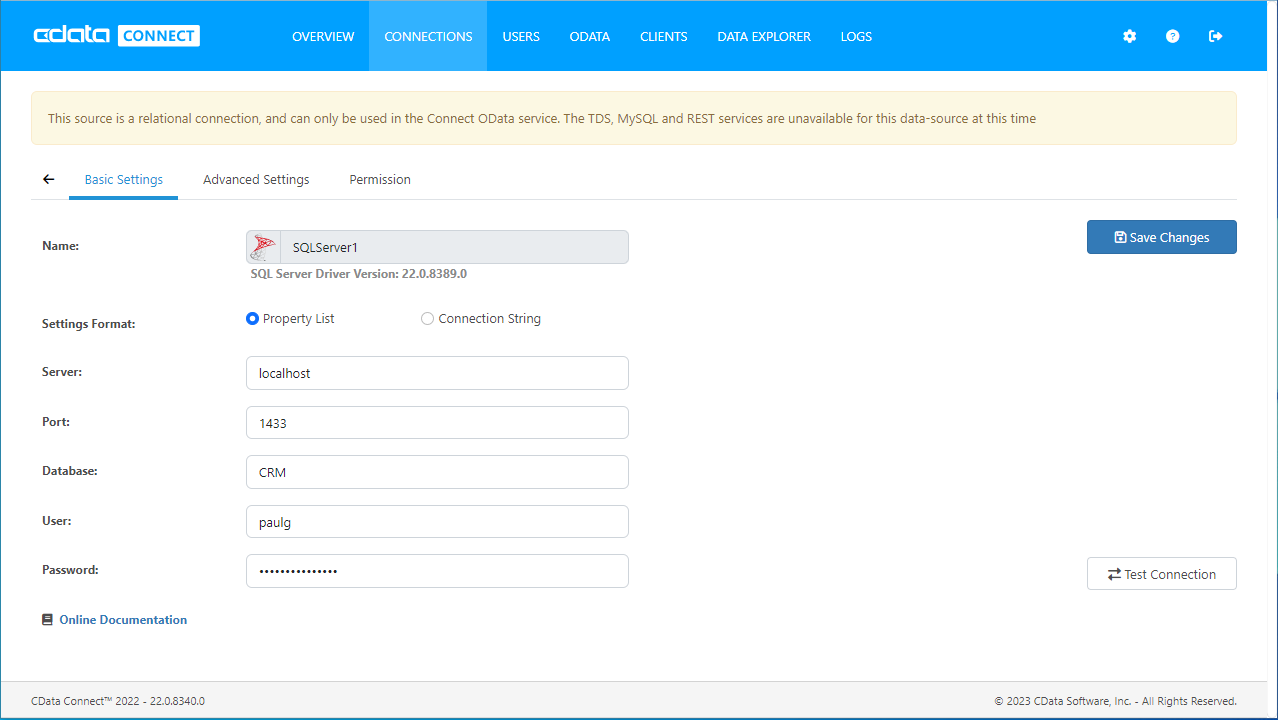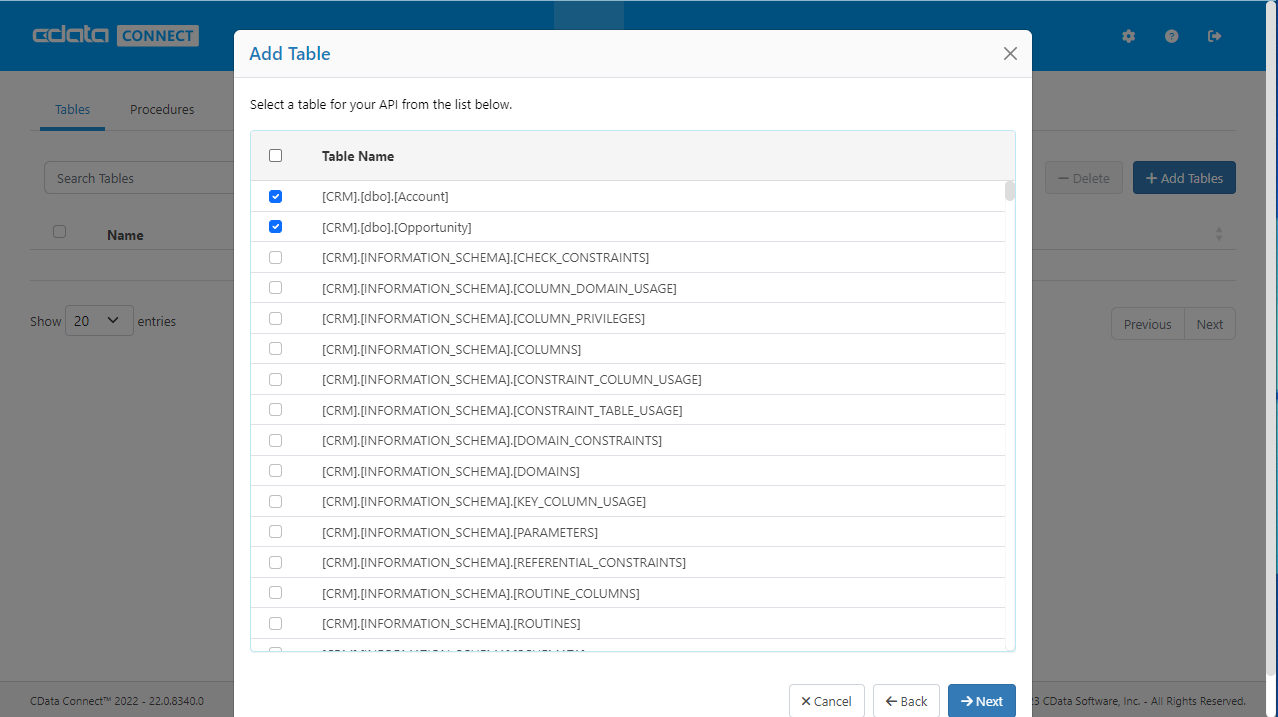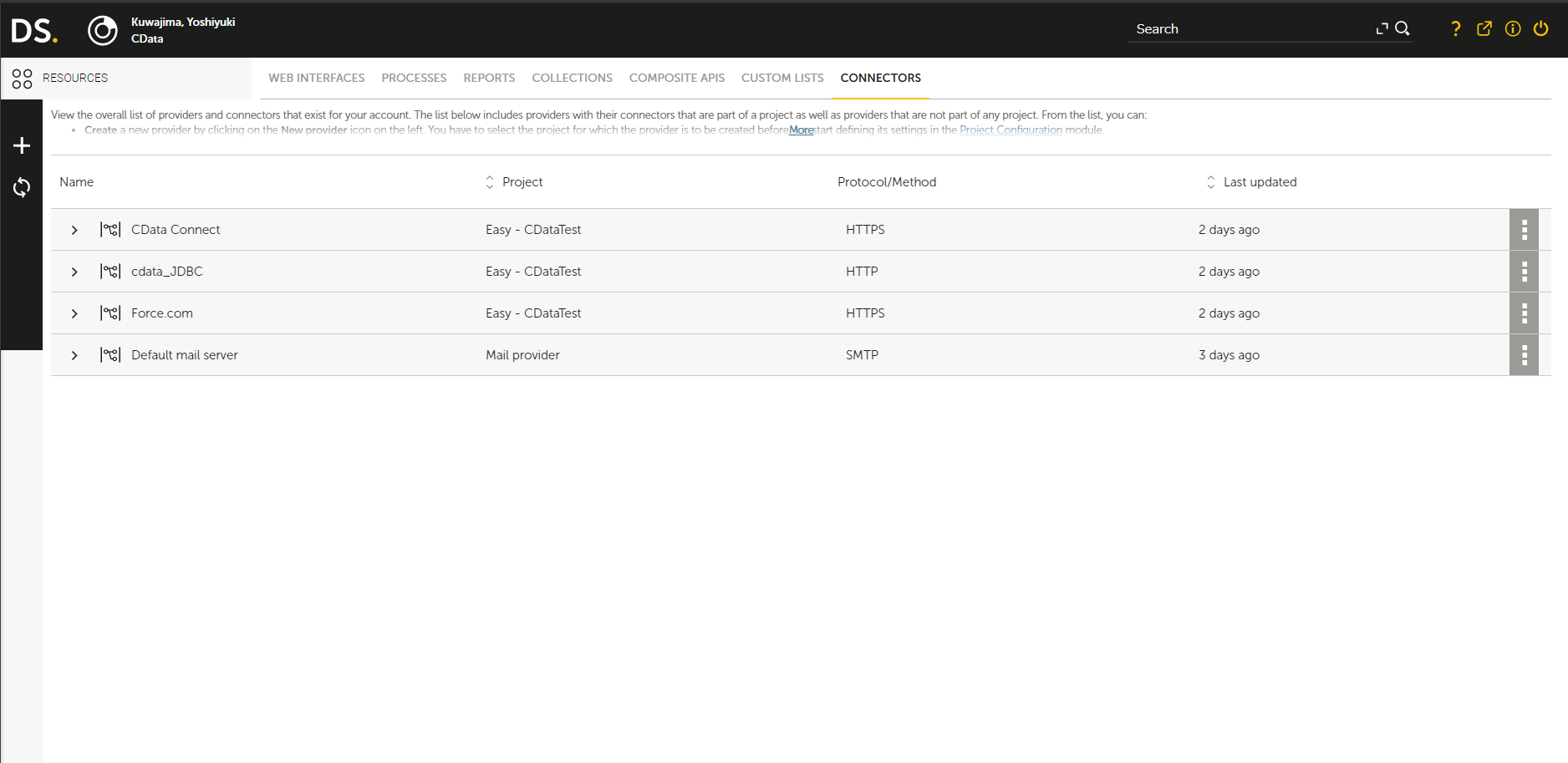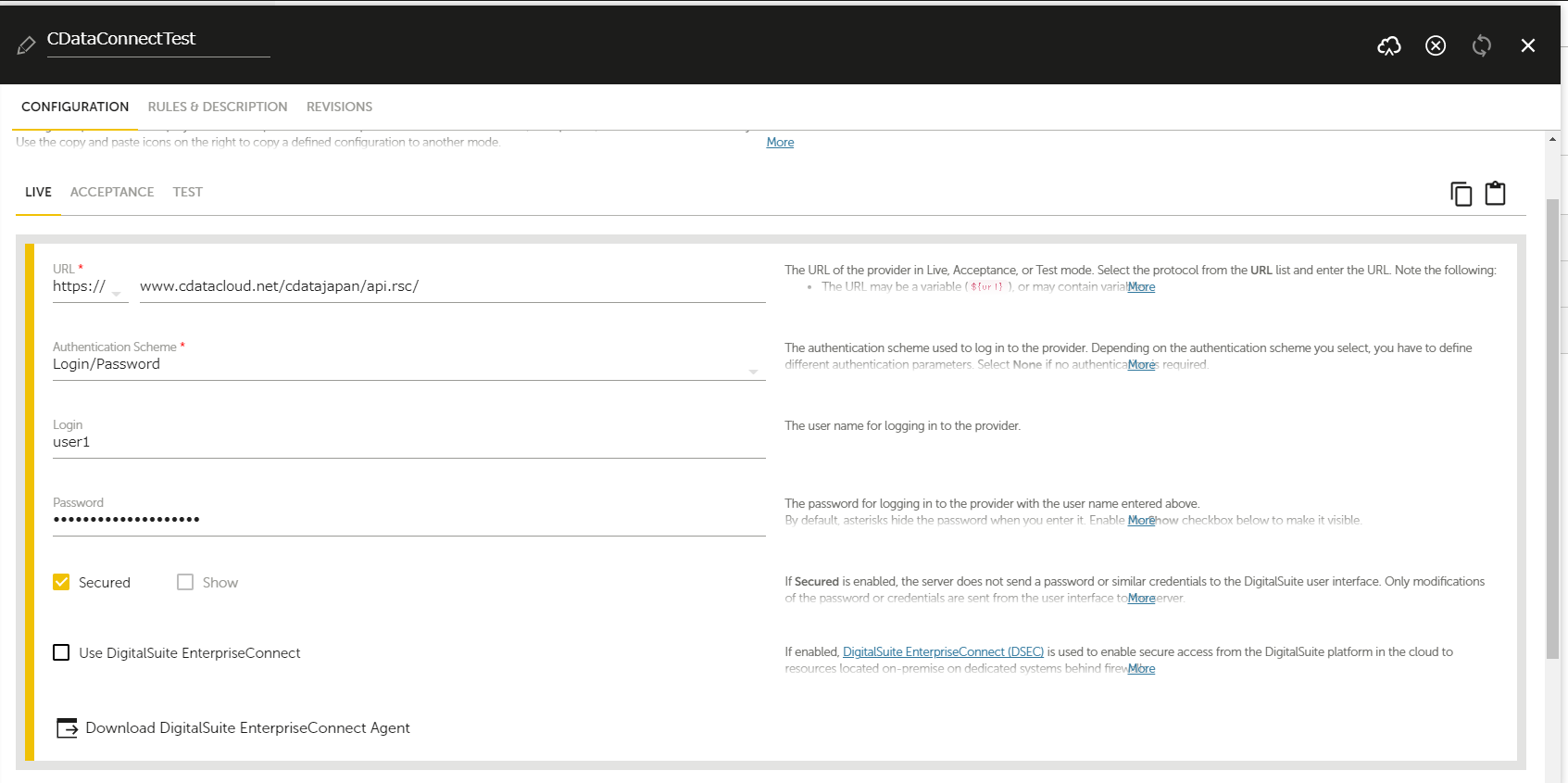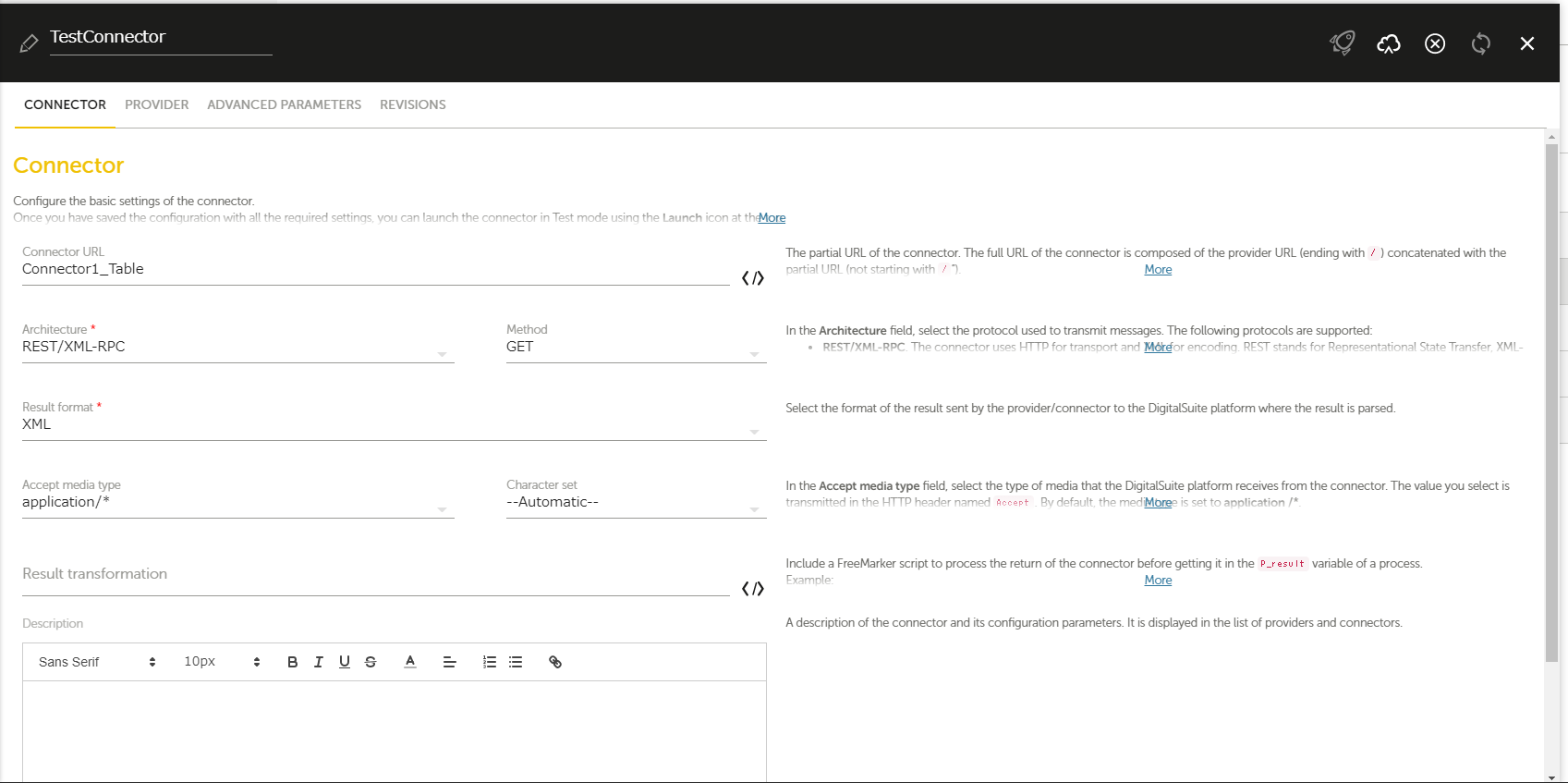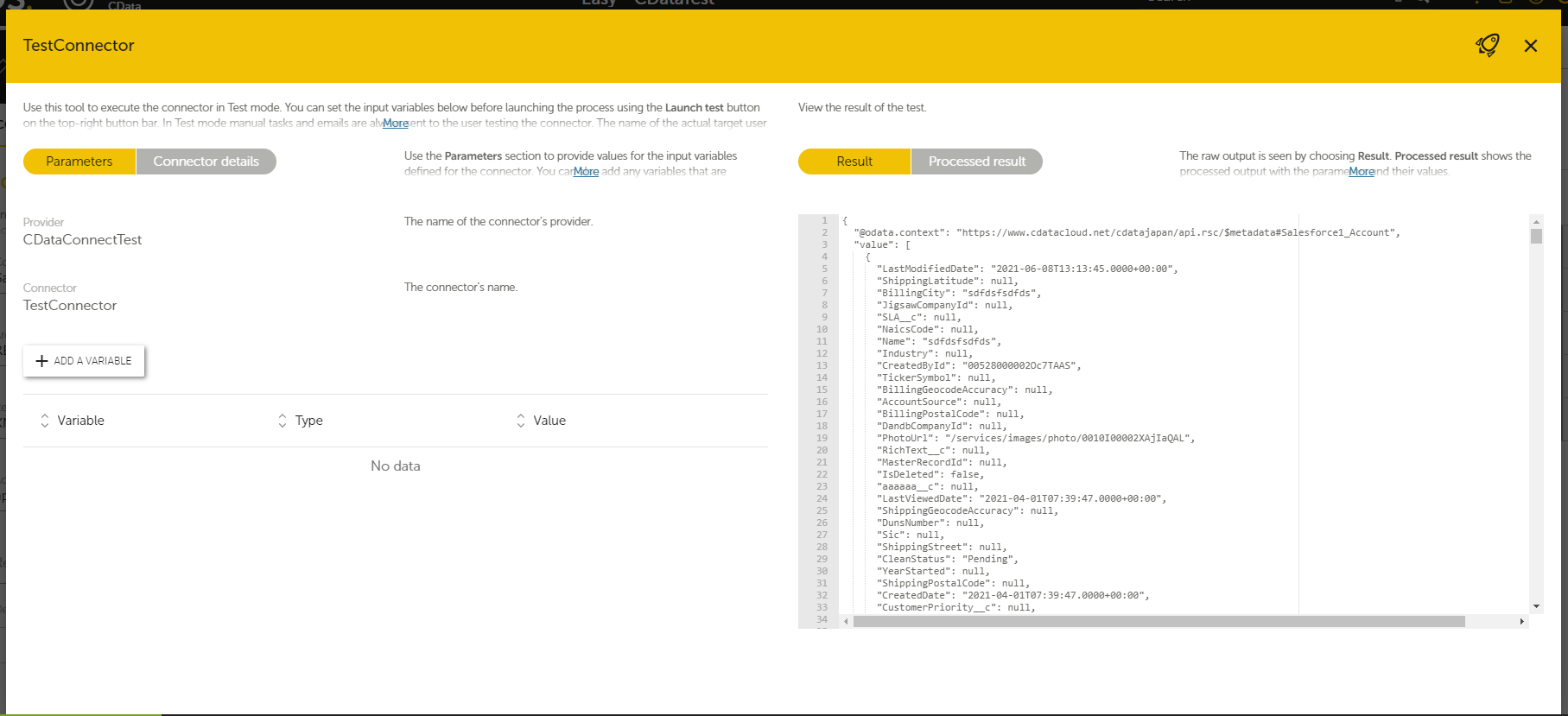Discover how a bimodal integration strategy can address the major data management challenges facing your organization today.
Get the Report →Connect to Google Drive Data in RunMyProcess through Connect Server
Use CData Connect Server to create an OData API for Google Drive and connect to Google Drive data in Akorbi Digital RunMyProcess.
Akorbi Digital RunMyProcess makes it easy to create applications for complex business processes, such as budget application and contract management. CData Connect creates a virtual database for Google Drive and can be used to generate an OData API (natively consumable in RunMyProcess) for Google Drive. By pairing RunMyProcess with the CData Connect Server, you get direct connectivity to all your SaaS and cloud-based Big Data and NoSQL sources - no need to migrate your data or write your own integrations. Simply connect to Connect Server from RunMyProcess as you would any other REST service and get instant, live access to your Google Drive data.
In this article, we walk through connecting to Google Drive from CData Connect and accessing Google Drive data through an OData feed in RunMyProcess.
Configuring Connect Server
To work with live Google Drive data in RunMyProcess, we need to connect to Google Drive from Connect Server, provide user access to the new virtual database, and create OData endpoints for the Google Drive data.
Add a Connect Server User
Create a User to connect to Google Drive from RunMyProcess through Connect Server.
- Click Users -> Add
- Configure a User
![Creating a new user]()
- Click Save Changes and make note of the Authtoken for the new user
![Connect Server users]()
Connect to Google Drive from Connect Server
CData Connect Server uses a straightforward, point-and-click interface to connect to data sources and generate APIs.
- Open Connect Server and click Connections
![Adding a connection]()
- Select "Google Drive" from Available Data Sources
- Enter the necessary authentication properties to connect to Google Drive
You can connect to Google APIs on behalf of individual users or on behalf of a domain. Google uses the OAuth authentication standard. See the "Getting Started" section of the help documentation for a guide.
![Configuring a connection (SQL Server is shown).]()
- Click Save Changes
- Click Privileges -> Add and add the new user (or an existing user) with the appropriate permissions (SELECT is all that is required for RunMyProcess).
Add Google Drive OData Endpoints in Connect Server
After connecting to Google Drive, create OData Endpoints for the desired table(s).
- Click OData -> Tables -> Add Tables
- Select the Google Drive database
- Select the table(s) you wish to work with and click Next
![Selecting a Table (SQL Server is shown)]()
- (Optional) Edit the resource to select specific fields and more
- Save the settings
(Optional) Configure Cross-Origin Resource Sharing (CORS)
When accessing and connecting to multiple domains from an application, such as Ajax, you might violate the limitations of cross-site scripting. In that case, configure the CORS settings in OData -> Settings.
- Enable cross-origin resource sharing (CORS): ON
- Allow all domains without '*': ON
- Access-Control-Allow-Methods: GET, PUT, POST, OPTIONS
- Access-Control-Allow-Headers: Authorization
Save the changes to the settings.
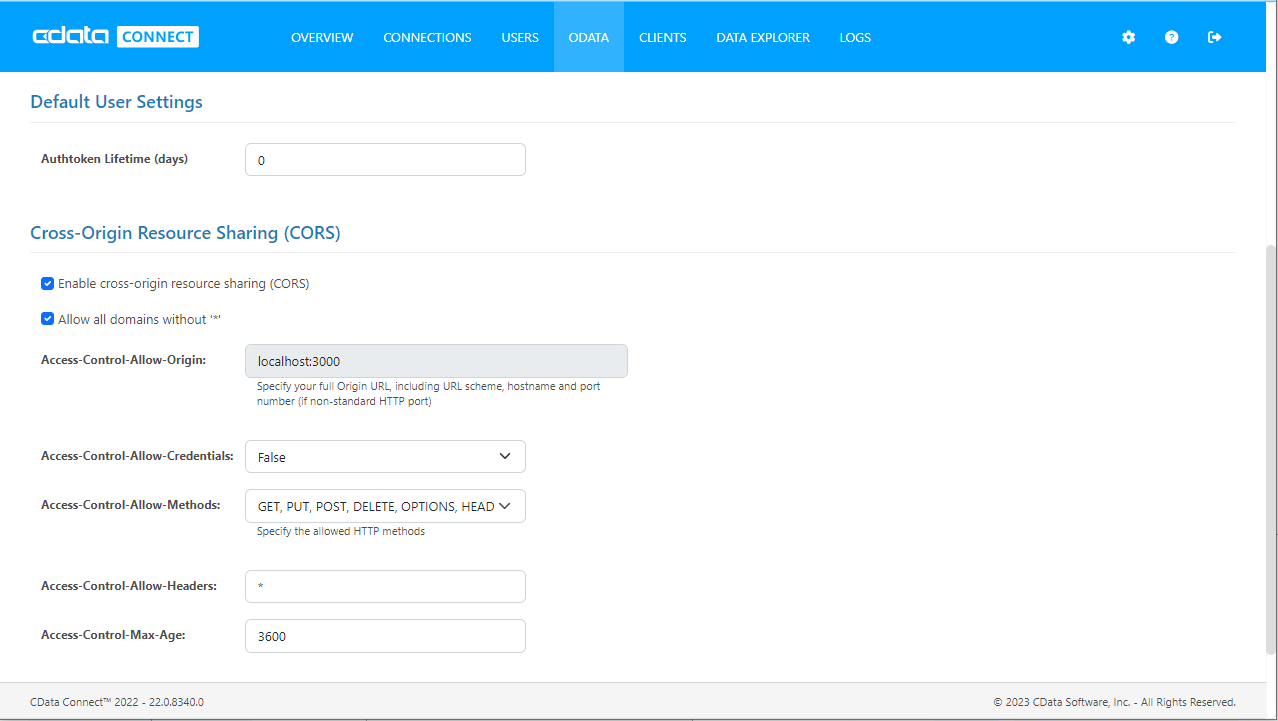
Sample URLs for OData Feeds
Once you have configured a connection to Google Drive, created a user, and created OData endpoints in Connect Server, you can access OData feeds for Google Drive data. Below, you will see the URLs to access tables and the list of tables. For information on accessing the tables, you can navigate to the API page for Connect Server (click the API link on the top right of Connect Server Web page). For the URLs, you will need the URL of Connect Server, likely in the form: CONNECT_SERVER_URL/. Since we are working with Angular, we will append the @json parameter to the end of URLs that do not return JSON data by default.
| Table | URL | |
|---|---|---|
| Entity (table) List | CONNECT_SERVER_URL/api.rsc/ | |
| Metadata for table Files | CONNECT_SERVER_URL/api.rsc/Files/$metadata?@json | |
| Files | CONNECT_SERVER_URL/api.rsc/GoogleDrive_Files |
As with standard OData feeds, if you wish to limit the fields returned, you can add a $select parameter to the query, along with other standard OData URL parameters, such as $filter, $orderby, $skip, and $top. See the help documentation for more information on supported OData queries.
Retrieve Google Drive Data from RunMyProcess DigitalSuite Studio
With the connection to Google Drive and OData endpoints created, we are ready to add Google Drive data to RunMyProcess for retrieval.
Create a Provider
- Log into RunMyProcess and open DigitalSuite Studio.
- Click Resources to bring up the Resources page, then select then the CONNECTORS tab.
![Connectors page]()
- Click the + (New Provider) button to create a new provider, choose the project to use, then click Confirm.
![Create a new provider]()
- In the provider settings page, configure the following properties.
- URL:Set the OData endpoint in the CData Connect Endpoints page.e.g. CONNECT_SERVER_URL/api.rsc/
- Authentication Schema:Select Login/Password.
- Login:Specify the CData Connect User name configured above.
- Password:Specify the Authtoken of the user.
![Selecting a connector]()
- Fill in the same properties in the ACCEPTANCE and TEST tabs. Note: You can copy the configured settings by clicking 'Copy this configuration button,' then pasting the content in the new tab by clicking 'Paste previously copied configuration.'
- Click Save to save the properties.
Retrieve Google Drive Data by Creating a Connector
- In the CONNECTORS tab, click the button with three dots to create the provider, then select Add connector from the menu.
- In the following page, set Connector URL to the OData endpoint configured in Connect Server.e.g. odataendpoint/
![Connector settings page]()
- Click Save then Launch to test the connector execution. Click Launch test to execute. The process is successful if you get the JSON response of your configured table information.
![Execution test page]()
More Information & Free Trial
Now, you have created a provider and connector to retrieve Google Drive data. For more information on creating OData feeds from Google Drive (and more than 200 other data sources), visit the Connect Server page. Sign up for a free trial and start working with live Google Drive data in RunMyProcess.






